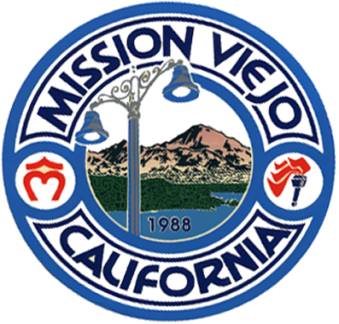|
|
|
Check out The Energy Network's latest webinar with The Climate Registry to learn about how the City of Long Beach partnered with The Energy Network on streetlight retrofitting. You will hear from the City of Long Beach and The Energy Network on how they teamed up to convert over 25,000 streetlights to more energy-efficient fixtures, making it the fourth largest project of its kind on the West Coast.
|
|
|
|
UCLA's Energy Atlas a New Resource for The Energy Network
UCLA researchers recently debuted their new LA Energy Atlas, a free website that combines never-before-released data from energy utilities with public records to reveal previously undetectable patterns about how people, buildings and cities use energy. The LA Energy Atlas project is directed by Dr. Stephanie Pincetl, the founding director of the California Center for Sustainable Communities (CCSC) and was funded by The Energy Network and the County of Los Angeles' Office of Sustainability.
Researchers from the California Center for Sustainable Communities at UCLA assembled information in a searchable database that allows users to sort and parse building energy use attributes by household income; building age, size or use; city or neighborhood; energy use per square foot; energy use per capita; and other metrics.
The Energy Atlas will assist local governments in consolidating and coordinating individual climate action and energy reduction efforts happening across the region by providing region-wide climate and energy data; help individual local governments to improve climate action and energy reduction efforts by providing analytics tailored to specific geographies within the region (e.g. Cities or COGs); identify communities for additional investments; and evaluate GHG emissions from the built environment, assisting efforts to improve air quality and transition to the state's renewable portfolio standards.
"Buildings emit almost 40 percent of a city's greenhouse gases, but until now we didn't have much detail," said UCLA professor Stephanie Pincetl, head of the Energy Atlas project. "It was the equivalent of knowing that cars produced emissions, but not knowing the emissions difference between a diesel truck and a hybrid car."
The recent passing of several CA building energy bills, specifically SB 350 and AB 802, underscore the State's continued commitment to reducing GHG emissions and improving the efficiency of buildings. Both bills require energy consumption and energy savings to be mapped to meters and buildings - which has the potential to revolutionize energy programs and evaluation in the state.
With the creation of the Energy Atlas, Los Angeles is now ready to begin implementing the kinds of data-driven policy and program tracking envisioned by CA's recent energy bills, years before other parts of the state are able to do so.
The Energy Atlas website is powered by a geospatial relational database that connects address level energy consumption to parcel characteristics and census information. All data is downloadable and aggregated to protect privacy. For more information visit the center's website or contact The Energy Network at info@theenergynetwork.com.
|
|
Minor Adjustments Can Yield Big Savings

One of the many free services offered to agencies enrolled in The Energy Network is a Comparative Energy Analysis (CEA) - a comprehensive energy consumption analysis of all city-owned facilities.
The City of Mission Viejo's CEA identified unusually high gas usage at the City's library. The Energy Network suspected that the facility was under performing due to uncalibrated heating and cooling activity, which is not uncommon for HVAC systems.
The Energy Network determined that the HVAC system was in need of adjustment. Small metal boxes, known as variable air volume (VAV) terminal units, were inoperative, coupled with controls that were not performing as designed, resulting in misalignment with the library's operating hours.
 By implementing the The Energy Network's recommended measures, the City was able to make a few minor adjustments to existing equipment at the library, resulting in a more efficient HVAC system. These measures reduced the library's total annual energy use by over 141,000 kWh and more than 24,000 therms - cutting their total gas bill in half and saving the City almost $38,000 per year, showing that even minor adjustments can result in big savings. By implementing the The Energy Network's recommended measures, the City was able to make a few minor adjustments to existing equipment at the library, resulting in a more efficient HVAC system. These measures reduced the library's total annual energy use by over 141,000 kWh and more than 24,000 therms - cutting their total gas bill in half and saving the City almost $38,000 per year, showing that even minor adjustments can result in big savings.
To enroll in the program or obtain a CEA to save your agency energy and money, call (855)700-NETWORK or email us at info@theenergynetwork.com.
|
|
|
|
|
|
|
Continued Success in Green Real Estate

Today's homebuyers are prioritizing energy efficiency and durability-a growing trend that's being strengthened by a number of innovative initiatives developed by The Energy Network.
By spring 2015, The Energy Network had already surpassed its year-end goal of training 600 Southern California REALTORS to achieve the National Association of REALTORS Green Designation certification green real estate agents in Southern California. By December nearly 700 certified REALTORS will have the skills to educate homebuyers and sellers about the advantages of green, energy-efficient homes and help homebuyers take advantage of rebates and financing. In addition, we will train more than 100 appraisers in the valuation of green home features. These trainings are making an impact with homeowners. In a recent phone survey, our certified REALTORS revealed that nearly 300 of their clients have performed (or plan to perform) green home improvements, ranging from lighting and appliance upgrades to window replacements, HVAC system improvements, and insulation. To reach thousands more Southern California homebuyers, The Energy Network launched Smart-Homebuyer.com, which has received more than 300 consumer requests for custom rebate lists and green financing opportunities.
About The
Energy Network
The California Public Utilities Commission (CPUC) authorized The Energy Network to serve public agencies and their constituencies throughout Southern California.
The Energy Network's mission is to harness the collective action of public agencies and their constituents and to help them save energy by providing needed resources and technical expertise. The pilot phase is funded through the end of 2015.
|
This Program is administered by the County of Los Angeles and funded by California utility ratepayers under the auspices of the California Public Utilities Commission. |
|
|